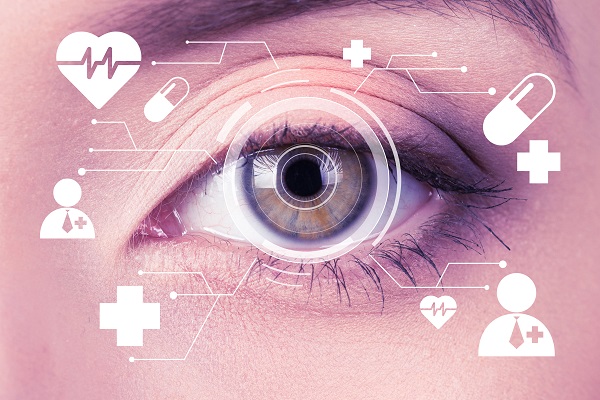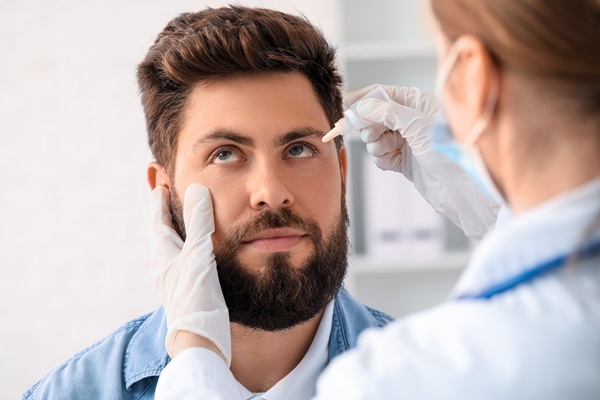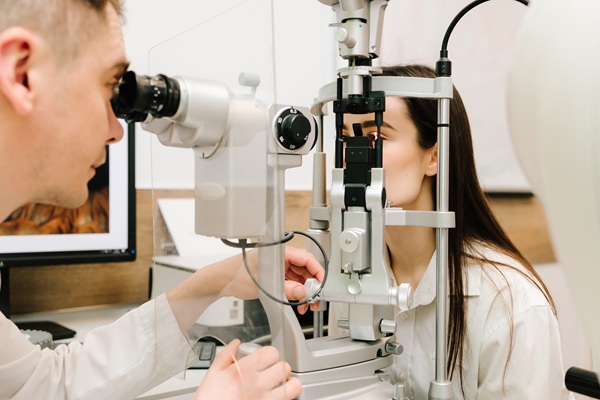7 Tips for Proper Eye Care

Poor eye care leads to vision impairment and blindness. The good news is that you can take steps to avoid this fate. It is not rocket science, but it does require some diligence on your part. Below are seven tips for proper eye care.
How to properly care for your eyes
Regular eye screenings
Most people are unaware that eye exams can detect many health issues, including diabetes and cancer. An eye doctor can also perform a full-field visual field test to screen for glaucoma and other optic nerve diseases that could lead to blindness.
An eye exam is the best way to catch these problems before they progress, which is why we strongly encourage patients to take advantage of the opportunity if they have not had one in a while or are nervous about going to their first one.
Protect the eyes against UV rays
It is important to protect the eyes with sunglasses against ultraviolet (UV) rays year-round, not just in the summertime. UV rays can cause damage to the retina and macula–the part of the eye that allows the patient to clearly see straight ahead. It can even lead to cataracts (clouding of the contact lens), eye cancer, pterygium (a growth on the cornea), and other health issues.
Fortunately, there are some simple things patients can do to protect themselves from UV damage. First, check the local weather to learn the expected UV rays for the day. They can still be at a high percentage if the sun is not out. If this is the case, choose eyewear with 100% UVA/UVB protection or lenses with a special coating designed to block the UV light. In addition, patients should look into using protective films over their windows if there is not enough shade inside their homes or office during long stretches.
Limit screen time
Screen time is unavoidable for individuals who work on a computer all day. However, adopting the 20-20-20 rule is one way to help protect the eyes from harm due to extended screen time exposure. This rule states that every 20 minutes of screen time, individuals should take a full 20-second break in the form of two blinks and focus on an object at least 20 feet away. It might be the wall or a lamp across the room, but it should be far enough away that it takes time for the eyes to adjust after looking at a screen too closely. By taking regular breaks from staring at screens, patients can reduce any strain on their eyes and prevent them from becoming dry or tired.
Adopt a balanced diet
The eyes depend on healthy nutrients to function properly. Eating a balanced diet rich in fresh fruit and vegetables ensures the patient gets the vitamins, minerals, and antioxidants that their body needs to maintain optimal eye health. Some foods that are essential to eye care include:
- Citrus fruit
- Carrots
- Spinach
- Dark leafy greens (kale, collards)
- Tomatoes
Other good choices are fish high in omega-3 fatty acids (salmon, mackerel, and herring) or nuts like walnuts and almonds. Also, avoid saturated fats. Doing so reduces the risk of plaque buildup around blood vessels in the retina, which causes blurry vision over time.
Stay consistent with makeup habits
Makeup can cause eye infections, injuries, and irritations. Certain ingredients in makeup can also irritate the eyes and lead to dryness and other problems. The chemicals in some cosmetics may cause chemical burns if they come into contact with the eye area. Some frequent users of eyeliner or mascara can experience redness, itching, or swelling after using these products. Patients often see these symptoms if:
- They share makeup products with friends
- They are using old/expired makeup
- Their products have harmful chemicals
Suppose the patient experiences any of the above symptoms. To ensure there is no permanent damage, they should immediately wash their face, keep a history of their symptoms, and schedule an appointment with a doctor.
Limit or quit smoking
Many are unaware that smoking is bad not only for their lungs but also has a major impact on their eyes. Smoking can cause cataracts, macular degeneration, and, ultimately, blindness. Smokers are also at a high risk of developing dry eyes once they light a cigarette since the smoke dries the eye's surface. This can irritate the eyes and make them red or itchy. All these lead to eye pain and irritation, which may sometimes be too much to handle for over-the-counter (OTC) eye medications.
Maintain a healthy weight
Obesity is a risk factor for eye disease. The extra weight puts a strain on the eyes, which can cause damage to the optic nerve and macula. It is important to note obesity is linked to diabetes, which can also lead to vision loss. Additionally, those who are obese are more likely to develop glaucoma than their peers with an ideal body mass index (BMI).
In conclusion
We hope this article is beneficial in helping you enhance your eye care. It is important to remember that regular checkups can help detect problems early on, so they do not become more serious. If you have any questions or concerns related to your eye care or need to schedule a screening, call the Bright Eyes Optometry New Rochelle office at (914) 730-9574.
Check out what others are saying about our services on Yelp: Eye Care in New Rochelle, NY.
Recent Posts
Dry eye treatment can significantly improve comfort, vision, and overall quality of life for individuals dealing with this common yet often frustrating condition. Dry eye occurs when the eyes do not produce enough tears or when the tears evaporate too quickly, leading to symptoms such as burning, redness, blurred vision, and a gritty sensation. Effective…
Ophthalmologist and optometrists are two of the main eye care professionals. Both play an important part in helping you maintain the health and function of your eyes. However, while each type of eye doctor provides vision care, knowing the care you need can be confusing. Choosing the appropriate eye care provider depends on individual needs,…
Sunglasses have become a part of many people's wardrobes; however, they are also a great tool for protecting the eyes. Along with playing a large role in our daily lives, eyes are also sensitive to many things—sunlight being one of them. It is easy for one's eyes to sustain damage from direct sunlight exposure. Thankfully,…
A comprehensive eye exam does more than assess vision; it can also reveal early signs of various health conditions. Many systemic diseases affect the eyes before other symptoms appear, making regular exams essential to overall health care. Optometrists use advanced diagnostic techniques to detect conditions beyond vision problems, allowing for early intervention and treatment.Routine eye…


